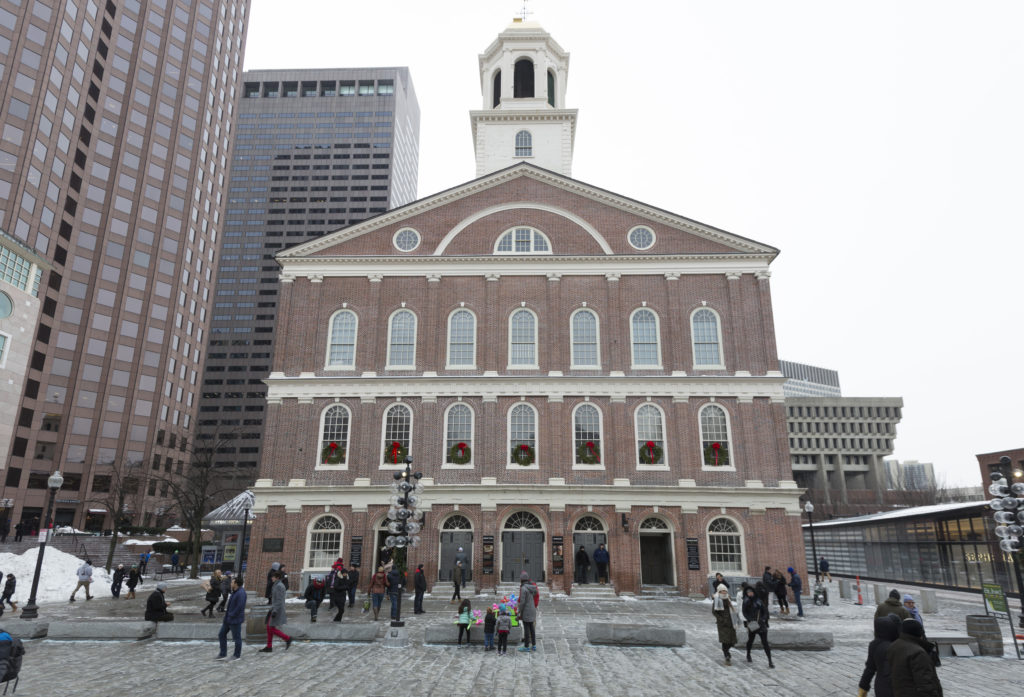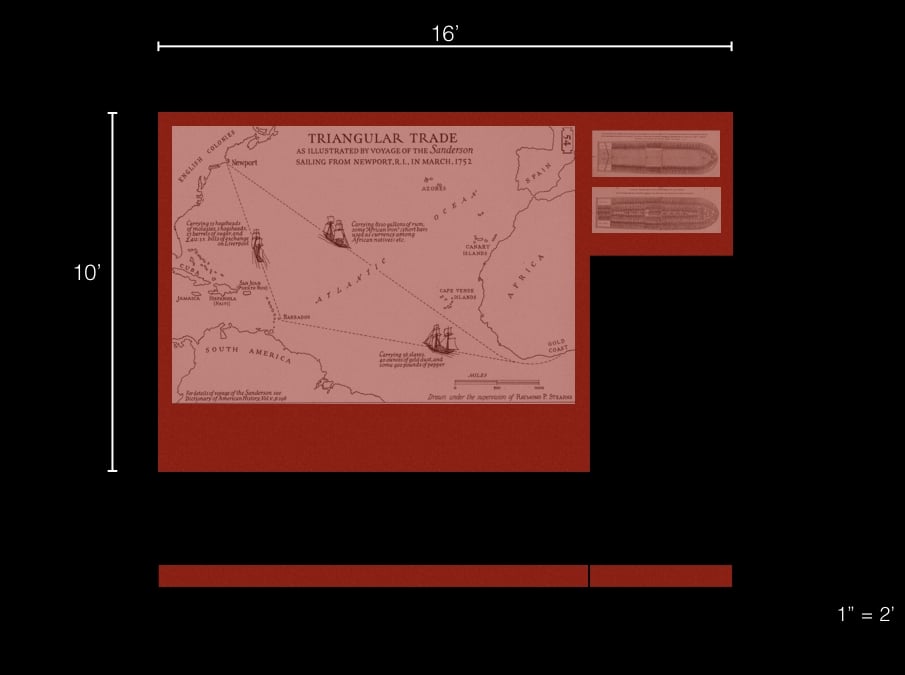Politics
Artist Steve Locke’s Plans for a Memorial to the Slave Trade in Boston Have Been Derailed After Opposition From Activists
Steve Locke is the latest artist to have a planned slave trade memorial scuttled.

Steve Locke is the latest artist to have a planned slave trade memorial scuttled.

Stephanie Cash

Artist Steve Locke’s planned memorial to the slave trade in Boston, Auction Block Memorial, will no longer become a reality due to political infighting and opposition from the Boston chapter of the National Association for the Advancement of Colored People (NAACP), which weighed in on the project just a week before Locke’s public presentation, according to an announcement on the artist’s Facebook and Kickstarter pages.
Locke had proposed to replace part of the cobblestone in front of Faneuil Hall, named for the 18th-century merchant and slave trader Peter Fanueil, with a 16-by-10-foot bronze plate—the actual size of the historic auction blocks—embossed with a map of the transatlantic slave trade route.
Locke posted an email on Kickstarter from NAACP Boston Branch president Tanisha M. Sullivan saying that the organization disapproved of his plans: “[T]he work we do every day through the NAACP Boston Branch is centered on uplifting and advancing communities of color, with a focus on the Black community in the City of Boston. It is for that reason that we object to the installation of a slave auction block memorial in front of Faneuil Hall and have made those objections known.”
She did not specify what exactly the group objected to, except that it wished it had been informed of Locke’s plans sooner. “[W]e were open to a conversation about [the project’s] evolution because even in moments of disagreement, we believe there are lessons that can be gleaned. Unfortunately, that opportunity was not afforded to us.”
In a written press statement, Sullivan elaborated further the NAACP’s position: “[We seek] a more inclusive discussion about the opportunity to memorialize these men, women, and children—where a memorial should be located, and how its design should be selected… If we are to own our past and commit to moving forward, we must do so together.”

An initial rendering of Steve Locke’s proposed memorial. Courtesy of the artist.
On Facebook, the artist also singled out Kevin C. Peterson, founder of the New Democracy Coalition, for waging a campaign against the project and spreading misinformation. Peterson, who has been lobbying to get the historic building renamed, posted an opinion piece on Medium blasting the project’s potential “to elevate our racial division” and for being a gesture that “may even strike the local and national black community as an insult.”
With the support of Mayor Martin J. Walsh, who sits on Auction Block Memorial’s advisory board, the city of Boston had committed $150,000 of the $300,000 price tag. To raise the remainder, Locke launched a Kickstarter campaign on June 19 (Juneteenth) to raise $30,000 for the first phase. As of July 17, the campaign had raised $45,424 from 448 backers, with two weeks left to go.
“I thought Steve’s proposal was thoughtful and an important telling of a history that must have more visibility,” Mayor Walsh told artnet News. “I was hopeful that a public process would have allowed Steve to provide that context.”
Locke, who after 30 years in Boston is moving to New York this fall to teach at Pratt Institute, said that he’s still committed to seeing the project realized along the East Coast, where there are dozens of sites with similar histories.

A study for Masud Olufani’s Blocked at Five Points, 2017.
Locke’s story is eerily similar to a recent situation in Atlanta, where Masud Olufani’s project, Blocked, was nixed in late 2017 by then Mayor Kasim Reed. The piece—an arrangement of 12 blocks, each with the cast feet of a man, woman, or child—had been approved by the Mayor’s Office of Cultural Affairs for temporary installation during an annual art festival, before talk of making it permanent gained traction. Olufani even garnered the favor of Congressman John Lewis, who penned a letter of support and would have served as a foot model. Olufani’s alma mater, the Savannah College of Art and Design, had committed to funding the entire $100,000 project.
Olufani’s chosen site for Blocked was in downtown Atlanta, outside the busy Five Points MARTA station, where five rail lines once converged and slave auction houses set up shop. After some consternation over the exact spot and which agency owned the property—the transit authority or the city of Atlanta—alternate sites in the surrounding area were suggested, but Olufani declined, emphasizing the work’s site-specificity. Olufani had hoped that new Mayor Keisha Lance Bottoms would rescue the project, but it has been abandoned.